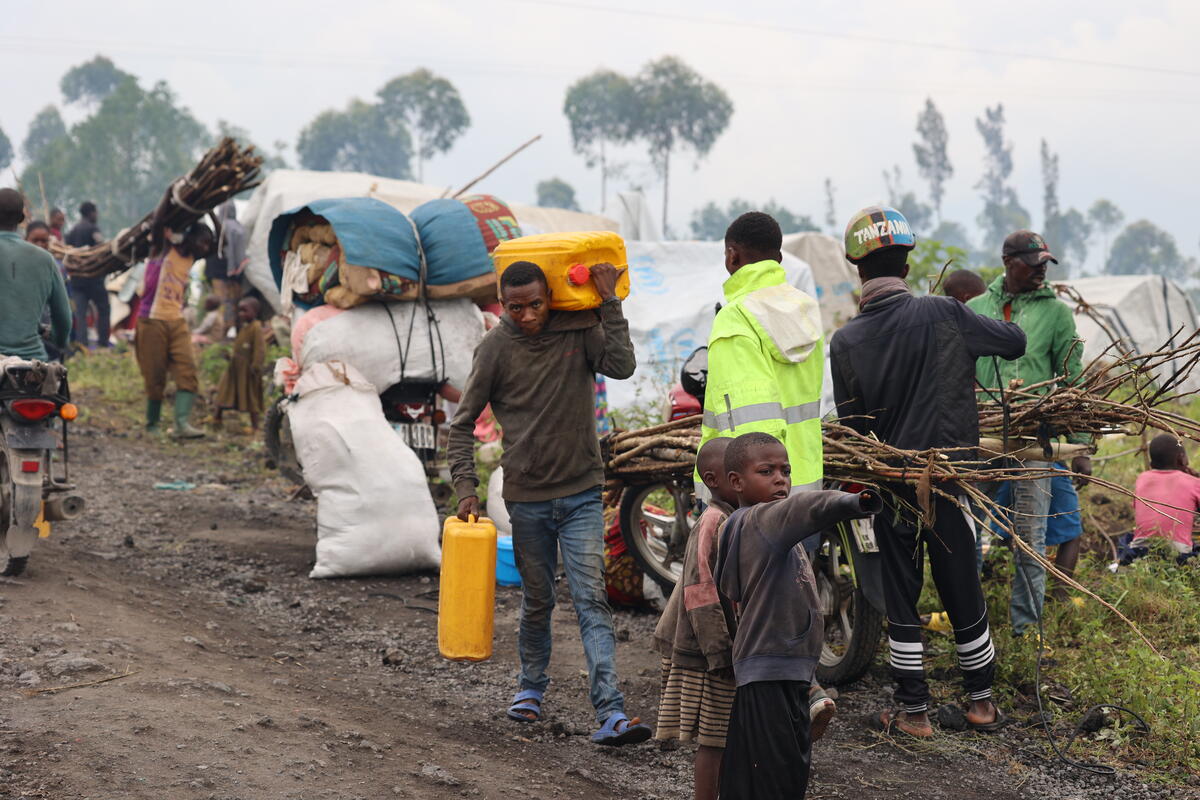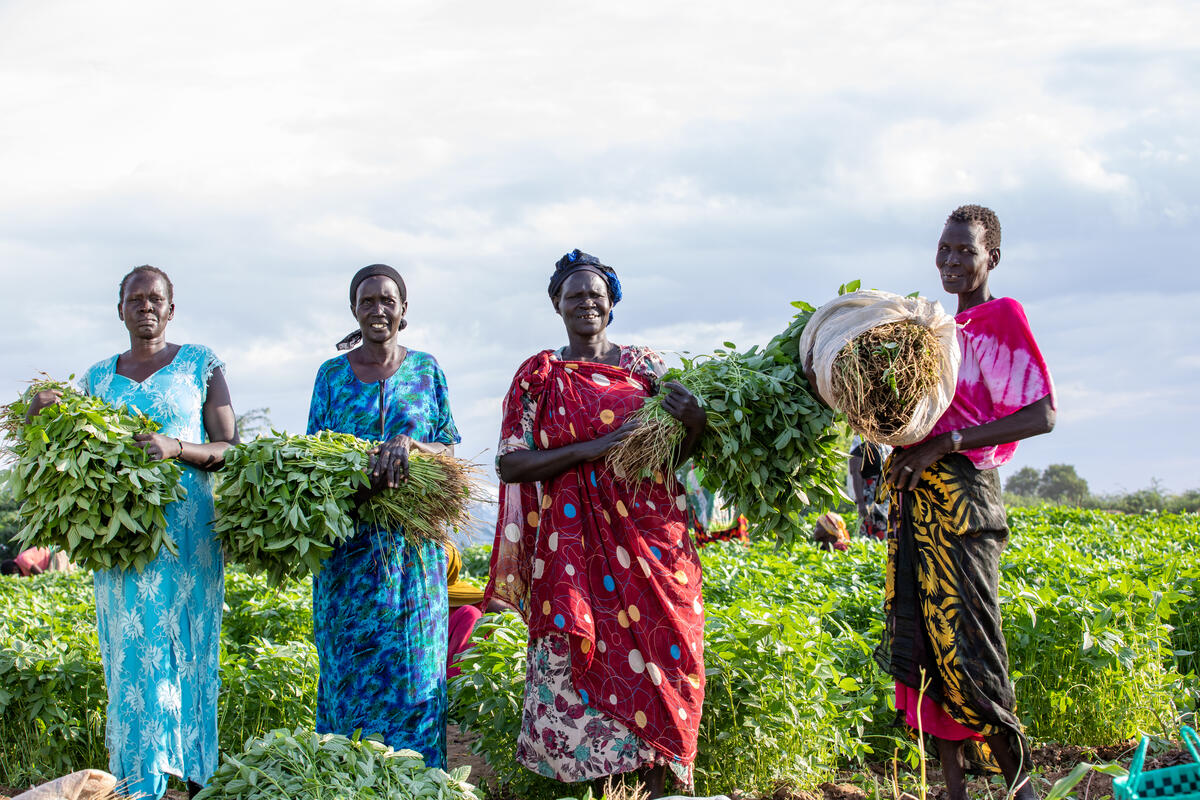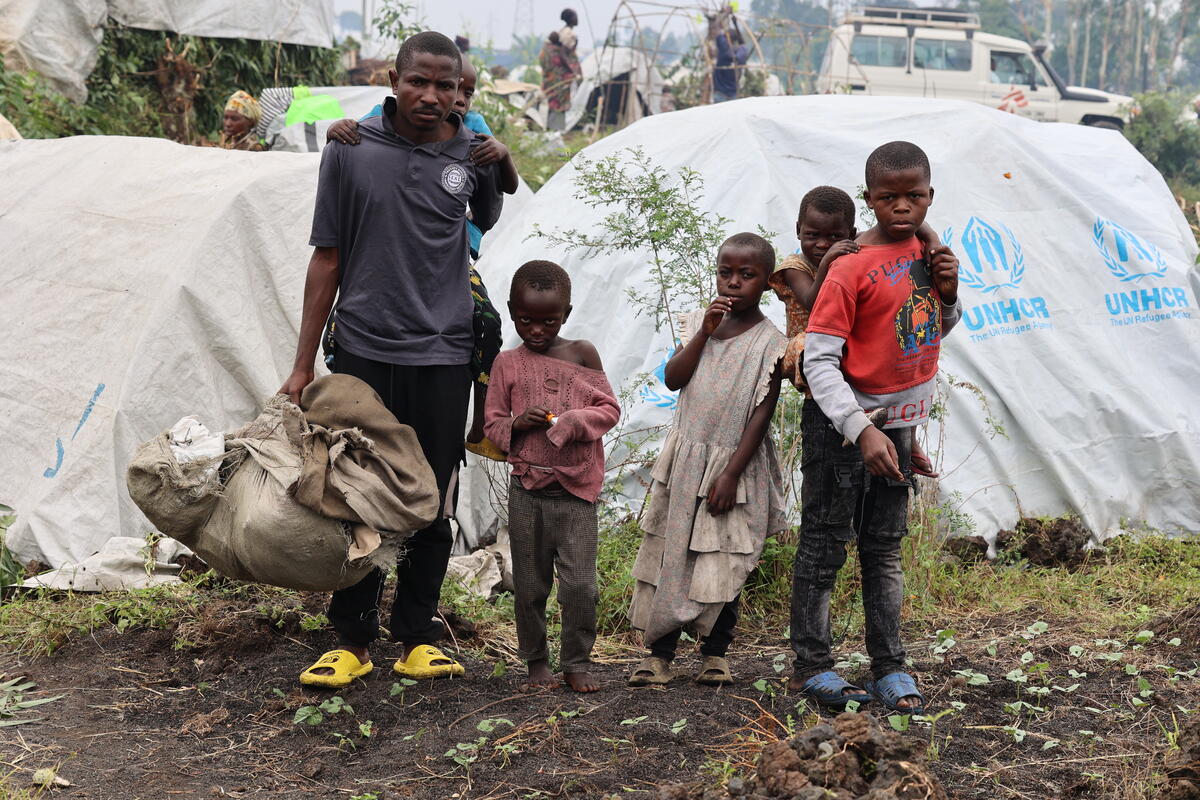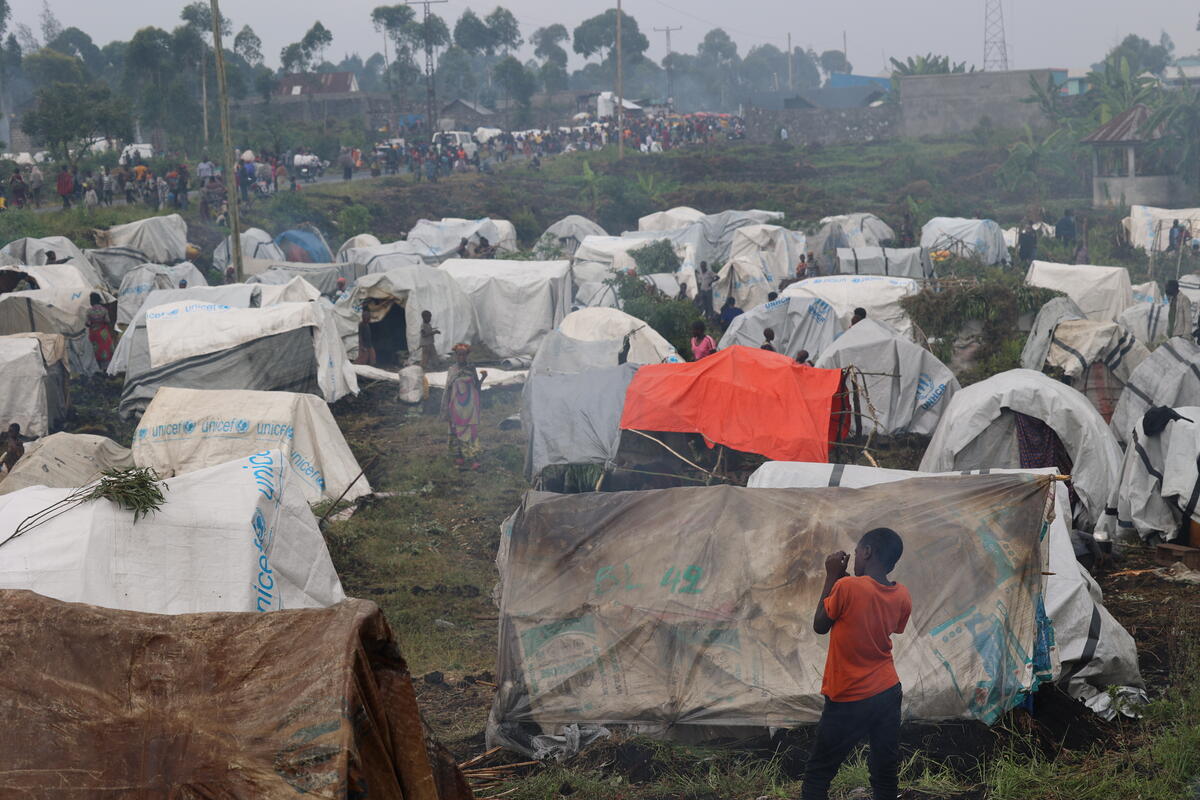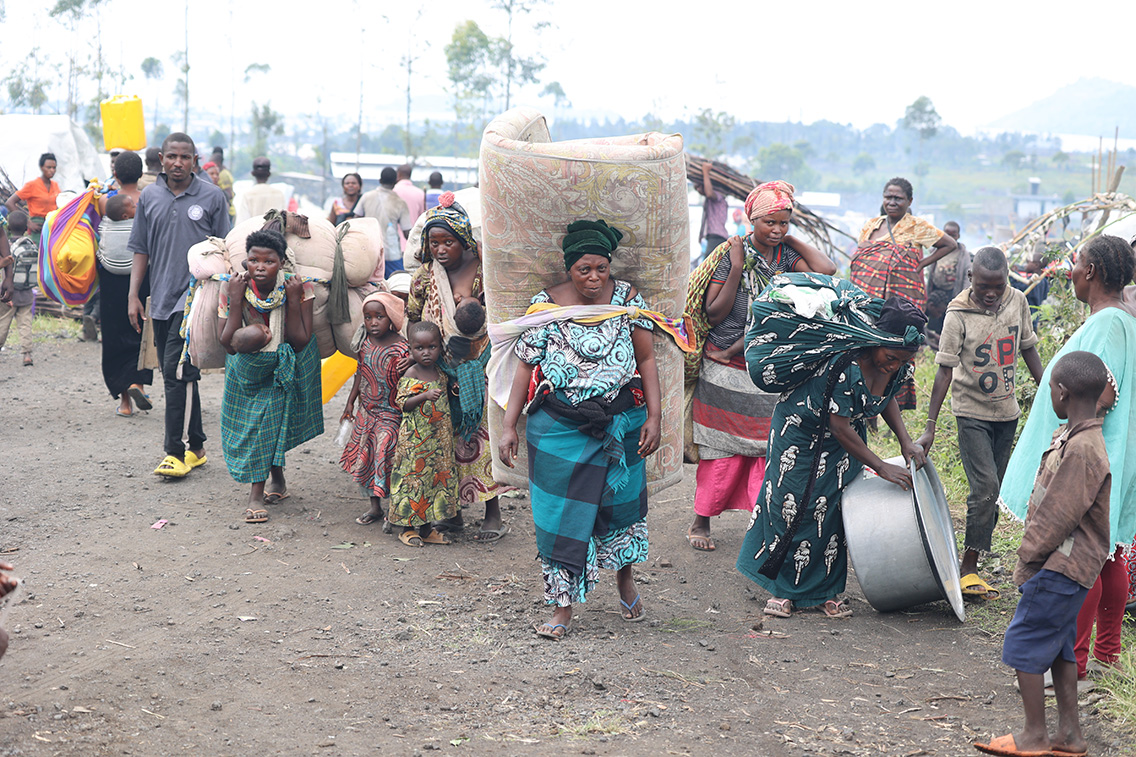Sisters with a Message: Our music will go where our feet can't reach
Sisters with a Message: Our music will go where our feet can't reach
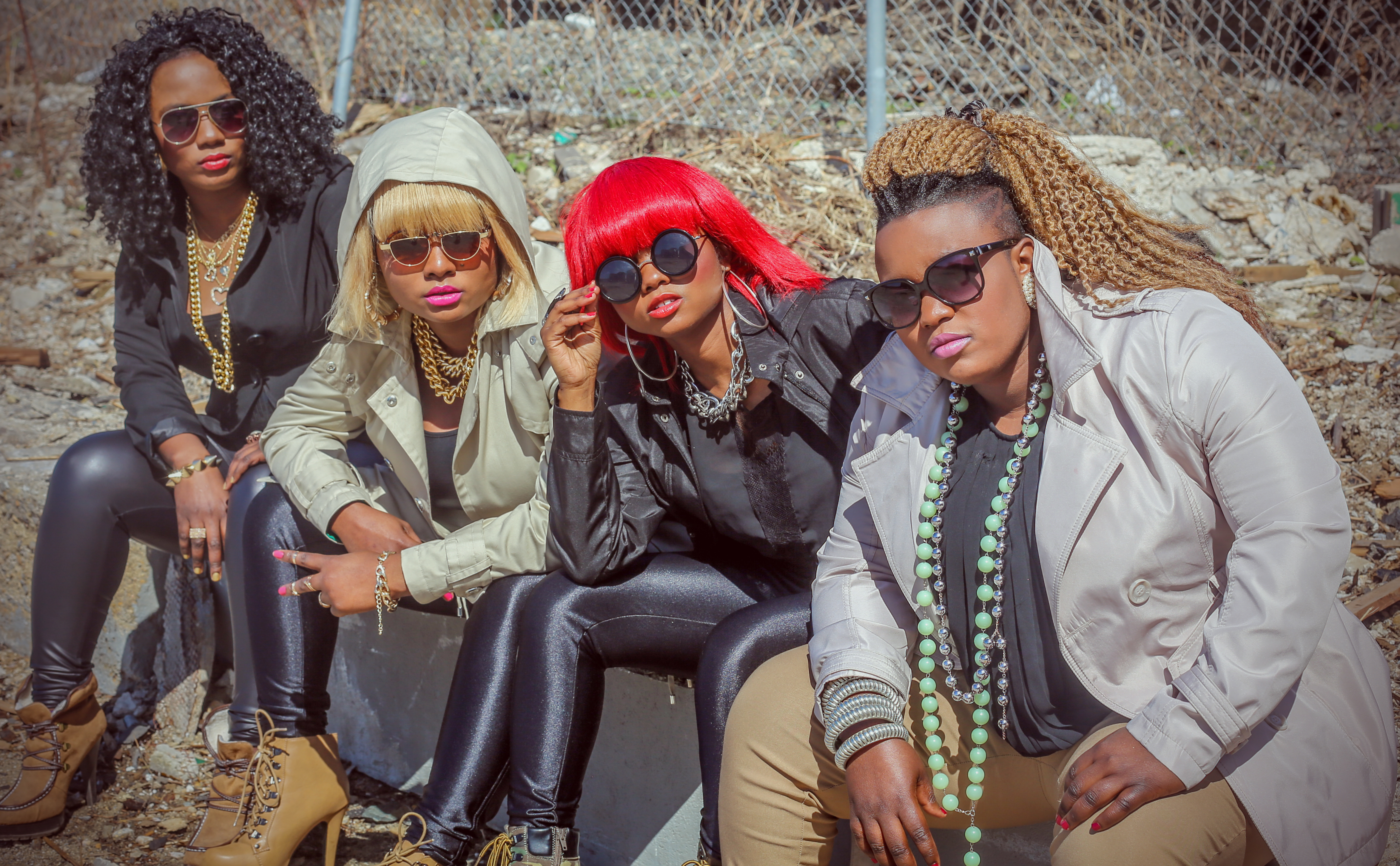
OTTAWA, Canada, August 25 (UNHCR) - As refugees in the Ugandan capital of Kampala, the four Bahati sisters released a debut single entitled "Don't Give Up." It's a message they have long embraced and which has helped them survive the tough times and make a go of things since being resettled in Canada two years ago.
Better known as "Thebahatizz," Sylvie, aged 26, Rachel, 25, Francine, 23, and 21-year-old Odette have been building a healthy following and winning accolades and awards for their energetic brand of hip hop that draws on their experiences as Congolese refugees and acts as a form of therapy. They are also using their fame to highlight the issue of sexual violence, especially in the Democratic Republic of the Congo (DRC).
Originally from Kiliba, a town in DRC's South Kivu province, the Bahati family fled to Uganda in 2002 to escape the debilitating war. In a series of e-mail exchanges with UNHCR from their home in the Canadian city of Winnipeg, the sisters told of the tough times they had endured as urban refugees.
"Life was not easy in Uganda, but we found comfort in music. Most days, we went to sleep on empty stomachs. We sang to feel a bit good," Rachel explained, while Odette noted that their living conditions were very basic. "There was no privacy; we were grown up girls already. We didn't have a mattress to sleep on and at night, we used to borrow clothes from the neighbours to lay our heads on," she added.
Music provided an escape and the sisters, who had always liked singing, formed Thebahatizz in Kampala and released their first single, "Don't Give Up," in 2010. But while it is a big part of their lives, Sylvie said that getting an education had been the most important thing for the girls since being resettled in Canada.
"Our biggest accomplishment so far in Canada, despite the Winnipeg cold, is to be able to go to school," she said, proudly adding: "We all graduated last June, after being in Canada for only 18 months." They all graduated with a high school diploma after studying as adults.
Now the girls are using their voices and growing reach to join a global campaign to end rape and other sexual violence in combat, especially against women, girls and boys in eastern Democratic Republic of the Congo, many of whom are forcibly displaced people.
To this end they recently launched their own campaign, "That Could Be Me," and have released two humanitarian music videos. "We chose this name because we want the world to put itself in the shoes of those women who are being sexually abused or the children who cannot go to school because of war," said Odette. The girls have been seeking support from individuals, corporations and businesses.
Thebahatizz are currently planning a tour in North America and Africa, looking for sponsors and venues. But music is not the only thing that keeps the four sisters busy. They are all dreaming to go to university next year.
While there is much to say about Thebahatizz, including their courage and determination to succeed in life and make progress in their musical career, there is one thing that remains close to their hearts. "We believe where our feet cannot reach, our music will," concluded Francine.
By Lauren Stanley and Gisele Nyembwe in Ottawa, Canada


